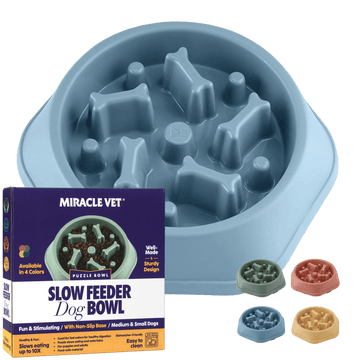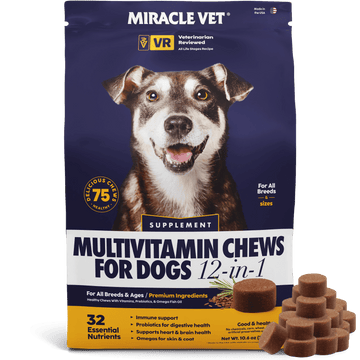Tips for helping your dog lose weight
Our complete guide to dog weight loss the healthy way. Help your dog lose weight and keep the weight off, with sustainable diet and exercise changes.
Dogs can face weight-related issues that impact their overall health and well-being. As responsible pet owners, it’s essential to ensure our furry companions maintain a healthy weight. If you've noticed your dog looks a bit more round than usual, don't worry! Do a quick review of how to tell if your dog’s overweight, and then we’ll help you with practical tips and guidance on how to help your dog lose weight safely and effectively.
Consult your veterinarian
Before starting any weight loss plan, consult your veterinarian. They can assess your dog's current health, identify any underlying medical conditions, and recommend a suitable weight loss strategy. Your vet will also help you set realistic weight loss goals and monitor your dog's progress throughout the journey.
Adjust your dog’s diet
Proper nutrition is key to successful weight loss in dogs. Work with your veterinarian to develop a balanced and portion-controlled diet plan. Opt for high-quality, low-calorie dog food that is rich in lean proteins and essential nutrients. Avoid table scraps and unhealthy treats, and instead, reward your dog with low-calorie, healthy alternatives like small pieces of carrots or green beans. Adding veterinary-approved weight loss supplements and multivitamins can support healthy weight loss for your dog.
Measure dog food portions
Overfeeding is a common cause of weight gain in dogs. Accurately measure your dog's food portions and avoid free-feeding. Split their daily food allowance into two or more smaller meals to prevent excessive hunger and encourage a steady metabolism. A slow-feeder bowl can also help slow their eating and improve digestion.
Increase exercise
Regular exercise is essential for weight loss and overall well-being. Increase your dog's daily physical activity gradually. Engage in activities like brisk walks, playing fetch, or taking your dog to a dog park for social interaction and playtime. The frequency and intensity of exercise should align with your dog's age, breed, and physical condition, so consult your veterinarian for personalized exercise recommendations.
Monitor your dog’s weight loss
Keep a weight loss journal to track your dog's progress. Regularly weigh your dog and note down any changes in their weight. Monitor their energy levels, appetite, and overall behavior to ensure the weight loss plan is not causing any negative impacts.
Stay consistent
Consistency is key when it comes to helping your dog lose weight. Stick to the diet and exercise plan, and avoid deviations or cheat days. Remember, slow and steady weight loss is healthier and more sustainable than rapid changes.
Helping your dog lose weight is a labor of love that requires dedication and patience. With the right diet, exercise, and guidance from your veterinarian, you can set your furry friend on the path to a healthier and happier life. Remember to celebrate every small victory and cherish the journey towards a leaner and more active companion. By following these tips, you can make a positive difference in your dog's life and ensure they enjoy many more years of tail-wagging joy!











